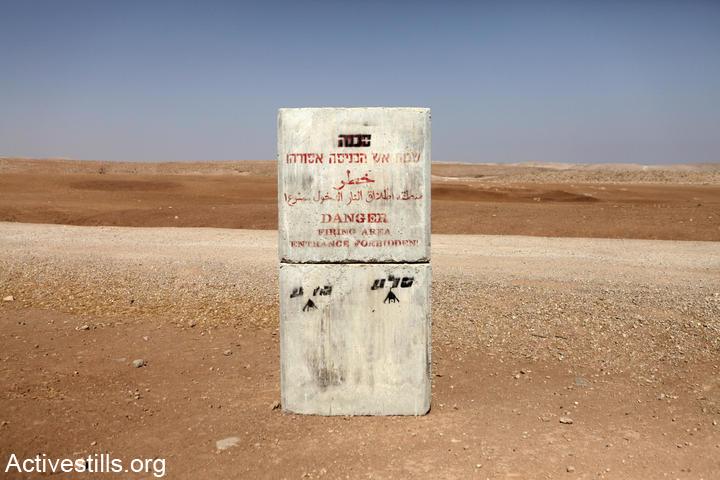Tag: Jinba
-
Settlers lead the Israeli army into a night attack in Jinba: beating children aged 4 to 16
5th July 2013 | International Solidarity Movement, Khalil Team | Jinba, Occupied Palestine On Wednesday night, the Israeli army carried out a lengthy and violent invasion of the village of Jinba, in Masafer Yatta, south of the West Bank. The army was reported to have been led by two Israeli settlers from the illegal outpost…
-
Military exercises in firing zone 918, Massafer Yatta
by Team Khalil 23 January 2013 | International Solidarity Movement, Massafer Yatta, Occupied Palestine On Monday 21st January over 100 soldiers from the Israeli army held training exercises in the firing zone 918 in Massafer Yatta, also known as South Hebron Hills. The exercises continued throughout the day on Tuesday 22nd January. The Israeli military…
-
Christmas day in the firing zone
by Team Khalil 25 December 2012 | International Solidarity Movement, West Bank The residents of two villages in the Israeli firing zone 918 in the South Hebron Hills experienced a fearful Christmas day as the Israeli soldiers and a tank conducted firing exercises in close proximity to their homes. From late afternoon on 25 December the…

